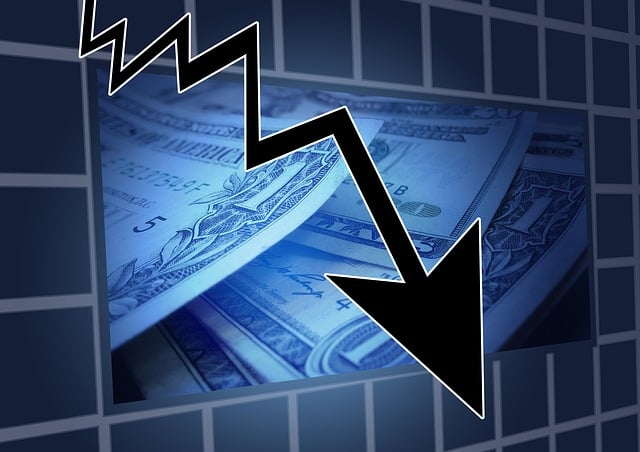Business
Safeguarding Your Business Funds in Periods of Economic Uncertainty
The dust hasn’t yet settled from the 2023 banking crisis, and another closure could very well be right around the corner. However, regardless of the economic uncertainty these days, it’s always important for leaders to look at what’s going on in their finance functions and determine whether they have the necessary measures to protect operations from upheaval and potential fraud.

Banking crises are far from a new phenomenon, and periods of economic uncertainty and stress have long increased the risk of bank failures.
This is true for the 2023 banking crisis. As inflation rose, rapid interest rate hikes soon followed, and Silicon Valley Bank (SIVBQ) suddenly found itself in a problematic position. As a trusted partner in the tech startup space, many of its clients were also in trouble, as higher interest rates can quickly become a financial burden on high-growth startups. That stressful environment led to a significant influx of bank withdrawals almost simultaneously, also known as a bank run.
To cover the run, SVB began selling its Treasury bonds. However, given the economic uncertainty, the values of those bonds plummeted, resulting in significant losses. Rumblings ensued concerning SVB’s liquidity, ushering in another withdrawal spree the bank couldn’t handle, paving the way for its downfall.
Fortunately, the Federal Deposit Insurance Corp. protected uninsured SVB deposits of over $250,000. However, shortly after the bank’s collapse, a handful of regional and international banks also faced similar problems. Credit Suisse, for example, experienced a bank run so detrimental ($75 billion) that the bank was forced to sell to UBS Group (UBSG) in an effort to protect clients’ funds. Naturally, this led to concerns over a larger, more encompassing banking crisis, putting into doubt the security of even the healthiest financial institutions.
This isn’t the only economic trend affecting businesses, during this period of economic uncertainty. With inflation not likely to ease anytime soon, chances are that some economies might begin to stagnate. Without a clear vision of the future, they are preparing for potential volatility that could shake the economy, prompting companies to reevaluate expectations and weigh the business risks versus the financial risks of upcoming strategic initiatives.
This unpredictable economic outlook has led many leaders to question how to manage their companies’ financial risk, given the unpredictable outlook for the future.

Getting the Right Safeguards in Place
Though the sudden demise of SVB surprised many, there were ways for its customers to protect themselves better and minimize risk. Companies should diversify their funds across multiple credible banking and financial partners to create redundancies.
It’s important to note that not all banks are equal, with smaller financial institutions and regional banks having greater risk profiles. Ideally, you want to have tier-one and blue-chip banking partners within those redundancies, as institutions with higher regulatory standards help reduce risk.
Bank failures and collapses can be breeding grounds for fraudsters ready to exploit shocked and unsuspecting bank clients. For example, a nefarious individual could pose as a supplier and persuade customers to send funds to an alternate bank account. If a business doesn’t have a solution with financial fraud prevention capabilities, a simple phone call to the supplier to verify account details would help. But this is a step companies rarely take, as they trust that all transactions are safe and secure.
However, there is a bright side to this, as uncertainty tends to bring opportunity. It couldn’t be a better time for companies to reassess their operations and put in motion strategies to help weather negative economic trends and encourage long-term growth, even during a recession. While there will still be challenges, it’s always important to be proactive when the economy takes a hit.

Enacting a Forward-Thinking Strategy to Protect Your Finances During Economic Uncertainty
SVB’s swift collapse is just one example of unpredictable and volatile market conditions, showcasing the importance of instituting safeguards and applying best practices to help protect your business and fraud-proof funds.
The following are often the best places to start:
1. Diversify deposit accounts.
One of the easiest and most effective strategies any business can take is diversifying deposited funds to help create redundancies with your banking partners.
Keeping multiple accounts with multiple banks for deposits helps minimize the risk of liquidity issues in case one bank fails. Partnering with blue-chip and tier-one financial institutions is highly recommended, as they often have greater regulatory oversight and robust fraud prevention measures put in place.
2. Find a reputable technology partner.
Even when relying on quality financial institutions, businesses must still do their due diligence when selecting technology partners. Though this should go without saying, make sure your funds are protected by finding technology partners that are regulated and hold Money Transmitter Licenses (or MTLs).
Also, review your potential partner’s payment reconciliation process. Is it fast, accurate, and transparent? Does it proactively screen payees? Is the technology capable of syncing directly with your enterprise resource planning or accounting system? More importantly, what does the compliance review process look like?
You also want a technology partner you can trust and rely on long term, making it imperative to review your potential partner’s track record. What are its retention rates? What are customers saying about the company? Can it grow and scale alongside your business?
3. Reduce payment fraud.
Sometimes, businesses forget to implement the simplest measures to prevent fraud. A good safety measure to implement before making any payments to suppliers is to screen payees through national blocklists. By conducting a screening, you can preemptively identify possible fraudsters hiding their true identities. Preventative measures like this safeguard against potential fraud and ensure compliance with relevant regulations.
The dust hasn’t yet settled from the 2023 banking crisis, and another closure could very well be right around the corner, clouding the industry with more speculation and concern. Regardless of the economic uncertainty these days, it’s always important for leaders to look at what’s going on in their finance functions and determine whether they have the necessary measures to protect operations from upheaval and potential fraud.
__
(Featured image by geralt via Pixabay)
DISCLAIMER: This article was written by a third party contributor and does not reflect the opinion of Born2Invest, its management, staff or its associates. Please review our disclaimer for more information.
This article may include forward-looking statements. These forward-looking statements generally are identified by the words “believe,” “project,” “estimate,” “become,” “plan,” “will,” and similar expressions. These forward-looking statements involve known and unknown risks as well as uncertainties, including those discussed in the following cautionary statements and elsewhere in this article and on this site. Although the Company may believe that its expectations are based on reasonable assumptions, the actual results that the Company may achieve may differ materially from any forward-looking statements, which reflect the opinions of the management of the Company only as of the date hereof. Additionally, please make sure to read these important disclosures.

-

 Crowdfunding2 weeks ago
Crowdfunding2 weeks agoSpain’s Real Estate Crowdfunding Boom: Opportunity, Access, and Hidden Risks
-

 Crypto2 days ago
Crypto2 days agoBitcoin Steady Near $68K as ETF Outflows and Institutional Moves Shape Crypto Markets
-

 Fintech1 week ago
Fintech1 week agoDruo Doubles Processed Volume and Targets Global Expansion by 2026
-

 Business1 week ago
Business1 week agoTopRanked.io Weekly Affiliate Digest: What’s Hot in Affiliate Marketing [Health Trader Affiliate Program Review]
























